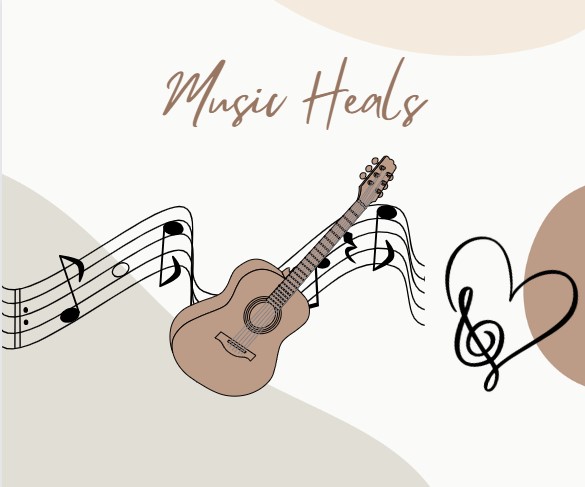How Music Helps People Heal: The Therapeutic Power of Music

Music is a universal language that transcends cultural, geographical, and linguistic boundaries. It has been an integral part of human culture for centuries, providing joy, solace, and a means of self-expression. But music’s impact goes far beyond mere entertainment; it possesses a remarkable therapeutic power that can help people heal in profound ways. In this article, we will explore the therapeutic benefits of music and how it can contribute to physical, emotional, and mental well-being.
The Science Behind Music Therapy
Music therapy is a well-established field that uses the power of music to address a variety of physical, emotional, and cognitive needs. It is based on the understanding that music can affect the brain and body in unique ways, triggering emotional and physiological responses that are beneficial for healing. Here are some key ways in which music therapy can have a positive impact:
- Stress Reduction: Listening to soothing music can trigger the release of stress-reducing hormones like serotonin and oxytocin. This can help lower blood pressure, reduce anxiety, and create an overall sense of relaxation.
- Pain Management: Music has the ability to distract people from physical pain by redirecting their focus. For patients undergoing medical procedures or suffering from chronic pain, music therapy can be a valuable tool in managing discomfort.
- Emotional Expression: Music provides a safe outlet for the expression of emotions. Composing or playing music allows individuals to convey their feelings when words alone may not suffice.
- Cognitive Benefits: For individuals with cognitive impairments, music therapy can stimulate memory and improve cognitive functions. It can also enhance speech and language skills.
The Power of Rhythm and Melody
Rhythm and melody are the fundamental building blocks of music that contribute to its therapeutic potential. Here’s how they play a role in healing:
- Rhythm: The steady beat of music can regulate heart rate and breathing, helping to create a sense of stability and control. Rhythmic patterns can also be used to improve motor skills in individuals with physical disabilities.
- Melody: Melodic elements, like harmonies and melodies, can evoke specific emotions and provide comfort. For example, a soothing lullaby can ease a troubled mind, while an upbeat song can boost one’s mood and motivation.
Music and Mental Health
The therapeutic effects of music are particularly pronounced in the realm of mental health. Music can be a powerful tool for managing conditions like depression, anxiety, and post-traumatic stress disorder (PTSD). Here are some ways in which it can help:
- Emotional Regulation: Music can help individuals identify and process their emotions. It offers a safe space to express feelings, which is especially beneficial for those who have difficulty verbalizing their emotions.
- Distraction from Negative Thoughts: Engaging with music can divert attention away from obsessive or distressing thoughts, reducing the intensity of anxiety or depression.
- Self-Expression: Creating music, whether through singing, playing an instrument, or composing, allows individuals to express themselves authentically, providing a sense of empowerment and self-worth.
Music Therapy in Practice
Music therapy is employed in a variety of settings, including hospitals, mental health clinics, schools, and rehabilitation centers. Certified music therapists work with individuals of all ages and backgrounds, customizing treatment plans to address specific needs and goals. Sessions may involve listening to music, playing instruments, songwriting, or even group activities.
Conclusion
The therapeutic power of music is a force to be reckoned with, offering healing and support for physical, emotional, and mental well-being. Whether you’re struggling with stress, physical pain, or mental health challenges, incorporating music into your life can be a beneficial addition to your healing journey. From the soothing melodies that calm the mind to the rhythmic beats that steady the heart, music is a universal balm that transcends words and offers solace to the human soul. So, the next time you find yourself in need of healing, don’t forget to turn to the therapeutic power of music.
Face the Music with Us
Many never seek treatment for addiction because of the cost. Face the Music Foundation is looking to help as many people as possible take the financial worry out of addiction treatment so they don’t have to choose between their savings and their sobriety. We need your help to get it done.

